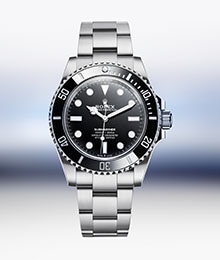Blog post #4
Link to advertisement being analyzed:https://www.youtube.com/watch?v=18XnJ2J-NsI
1) A core assumption of social judgment theory is that your attitudinal anchor influences how you evaluate a persuasive message. For example, when viewing the Rolex advertisement that I am analyzing in this blog post, one might experience high or low ego-involvement. According to our textbook, ego-involvement refers to, "the importance or certainty of an issue to a person's life, often demonstrated by a membership in a group with a known stand (Griffin, Ledbetter, Sparks, 2019, pg. 173)." In terms of this specific Rolex advertisement, those who are extremely wealthy and members of the upper class are likely to demonstrate high ego-involvement when viewing it, because they are the top one percent who can afford the product. Generally speaking, Rolex's symbolize wealth and elitism, which is why well off individuals may experience high ego-involvement when viewing this advertisement. If a wealthy person came across this advertisement, they may seriously consider buying the watch because they are members of the upper class, and owning something that symbolizes elitism may be extremely important to them. On the other hand, members of the lower-class, and individuals who have a low-income, may experience low ego-involvement when viewing this advertisement, because the product isn't even in the practical realm of what they can afford. Individuals who are members of the lower class may come across this advertisement, and instantly tune out, because they know that a Rolex is something that they cannot afford. Ego-involvement impacts the contrasting and assimilation of a persons attitudinal anchor. For example, individuals who demonstrate high ego-involvement on a particular issue or topic may experience their assimilation being impacted. Individuals with high ego-involvement are extremely passionate about the topics they are involved in, therefore, they eventually become somewhat numb to any advancement in that topic that leans in their favor, and they perceive the advancement as more similar to their anchoring attitude than it really is. Ego-involvement impacts the contrast of a persons attitudinal anchor in that people may judge messages that fall within their latitude of rejection as further away from their anchor than they really are (Griffin et al., 2019, pg. 174).

2) Rolex's target audience are the wealthy and upper class citizens, who can afford their products and have the means to be repeat customers. When a wealthy individuals views the specific Rolex advertisement that I included in this blog post, they heavily rely on the peripheral route when deciding if they want to actually purchase the product. According to our textbook, "the peripheral route offers mental shortcuts to accepting or rejecting a message...Instead of doing extensive cognitive work, recipients rely on a variety of cues that allow them to make quick decisions (Griffin et al., 2019, pg. 183)." With this being said, the target audience of this advertisement would utilize the social proof cue when deciding whether or not to purchase the watch. The social proof cue makes one think, "everybody's doing it, so I have to do it." Members of the upper class purchase and wear Rolex's as a staple that represents their wealth. Most wealthy people have these watches, which influences and pressures other wealthy people to purchase them as well.

4) If I actually purchased the Rolex watch from the advertisement that I included in this blog post, I would definitely experience cognitive and postdecision dissonance. According to Griffin et al., postdecision dissonance is, "strong doubts experienced after making an important, close-call decision that is difficult to reverse (2019, pg. 197)." Even if I was financially stable enough to purchase this watch, I would still experience the postdecision dissonance because it is simply not practical to own such an expensive watch. I would regret purchasing it because all it does is tell you the time, which I could easily just check my phone for. According to our textbook, "the more important the issue and the greater discrepancy between our behavior and our belief, the higher the magnitude of dissonance we will feel (Griffin et al., 2019, pg. 194)." With this being said, purchasing this Rolex watch would cause me to experience cognitive dissonance because I would be doing something that is out of the ordinary for me by making such a dramatic purchase. Personally, I would never own such an expensive watch because it would make me feel as though I am bragging and showing off. There are so many individuals all around the world who are literally starving and barley have enough money to survive, so owning such an expensive watch would make me feel a strong sense of guilt. I would much rather donate the money I would have spend on the watch to people in need, instead of making such a selfish and impracticle purchase. Therefore, owning this watch would cause me to have opinions that do not fit with other opinions that I hold, which is why I would experience cognitive dissonance if I purchased this watch.

Sources:
Griffin, E. A., Ledbetter, A., & Sparks, G. G. (2019). A first look at communication theory. McGraw-Hill Education.
Hi Josh! I totally agree with what you said about wealthy members of society having higher ego involvement in an advertisement like this, I said the same thing about my advertisement. I think that, from my experience, when I see an ad on TV for a product that might be a bit pricey but that I could still buy- I get excited and very interested. However, you almost know straight away with some items, like the watch you listed, that they're not in your financial wheel-house: so I totally understand how high and low ego involvement would work in that regard. Along with your notion of experiencing high dissonance after buying such an expensive item, I totally agree that there's more of a pressure owning expensive things that we're not used to, and why we might sometimes not want to be walking around or using such expensive luxuries.
ReplyDelete